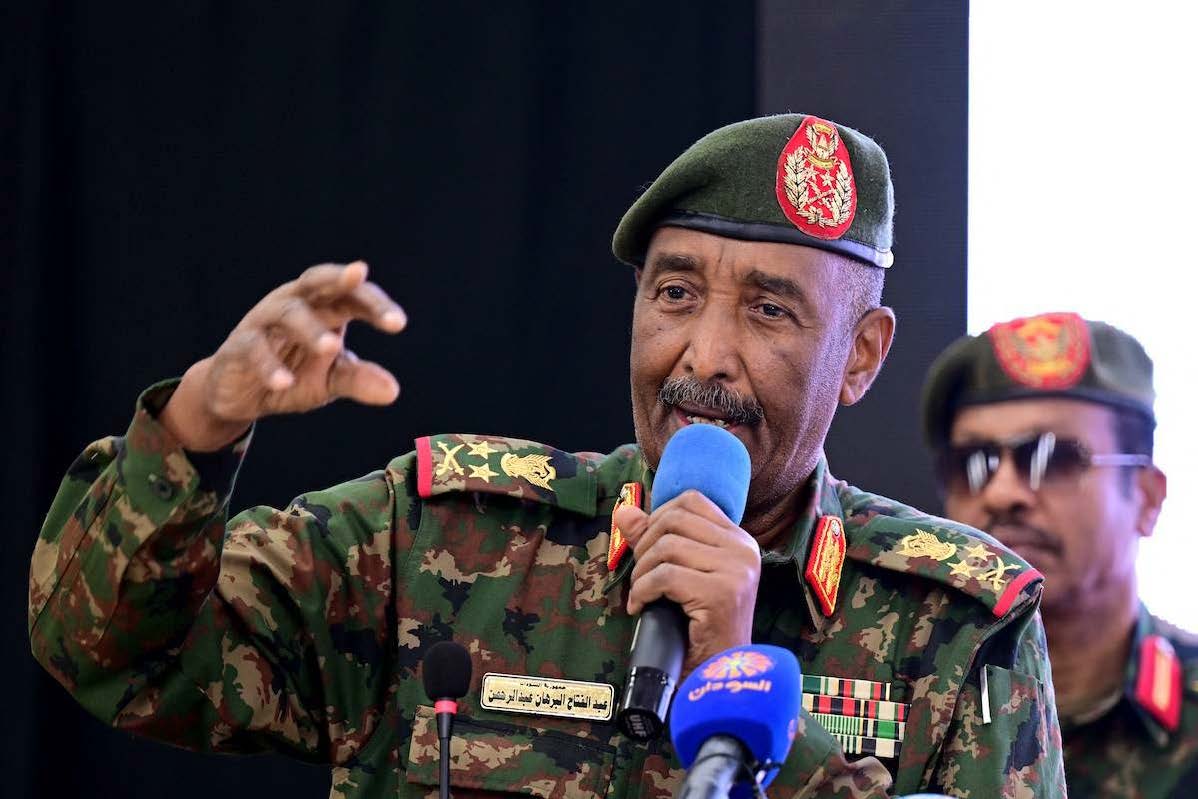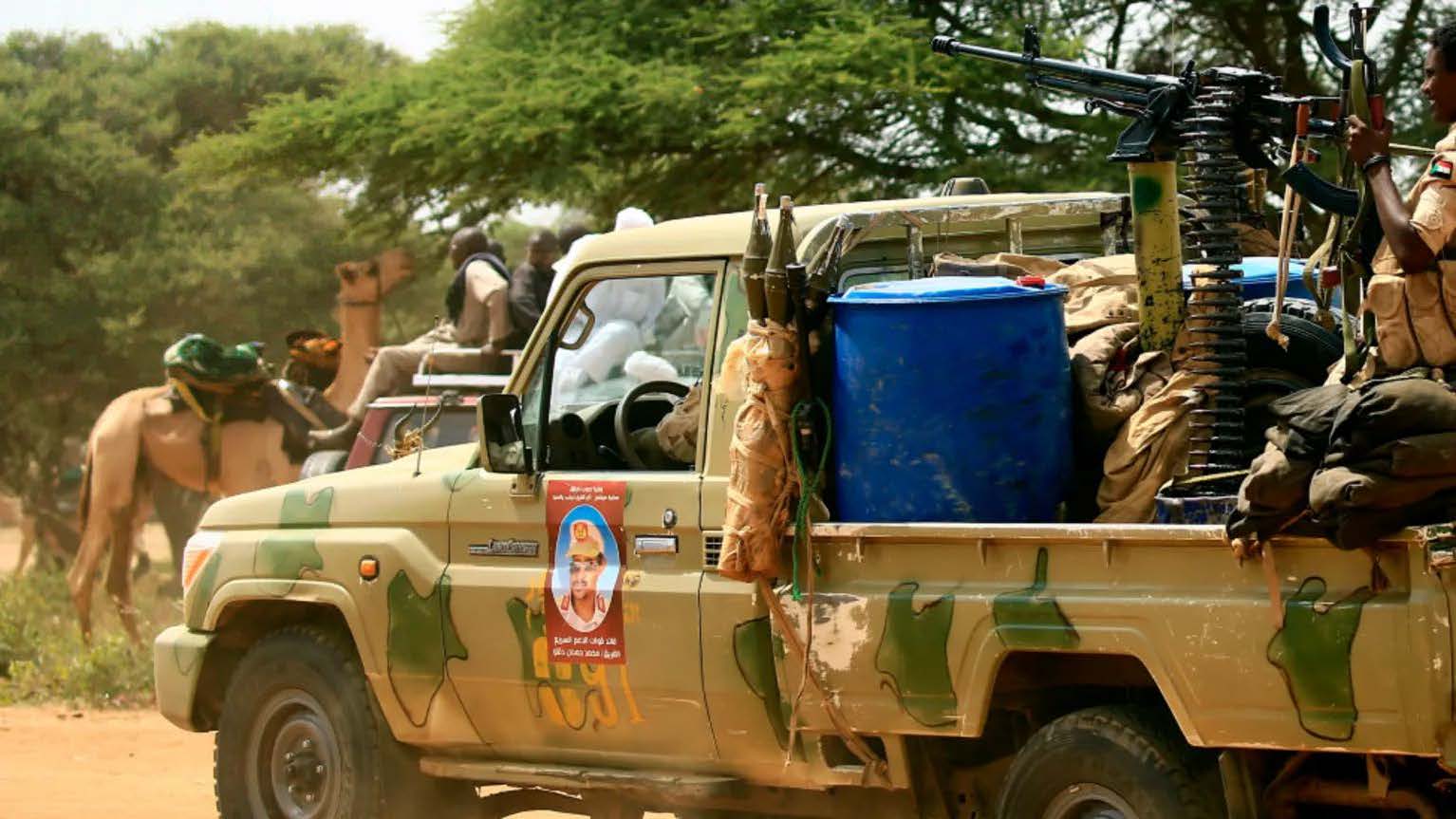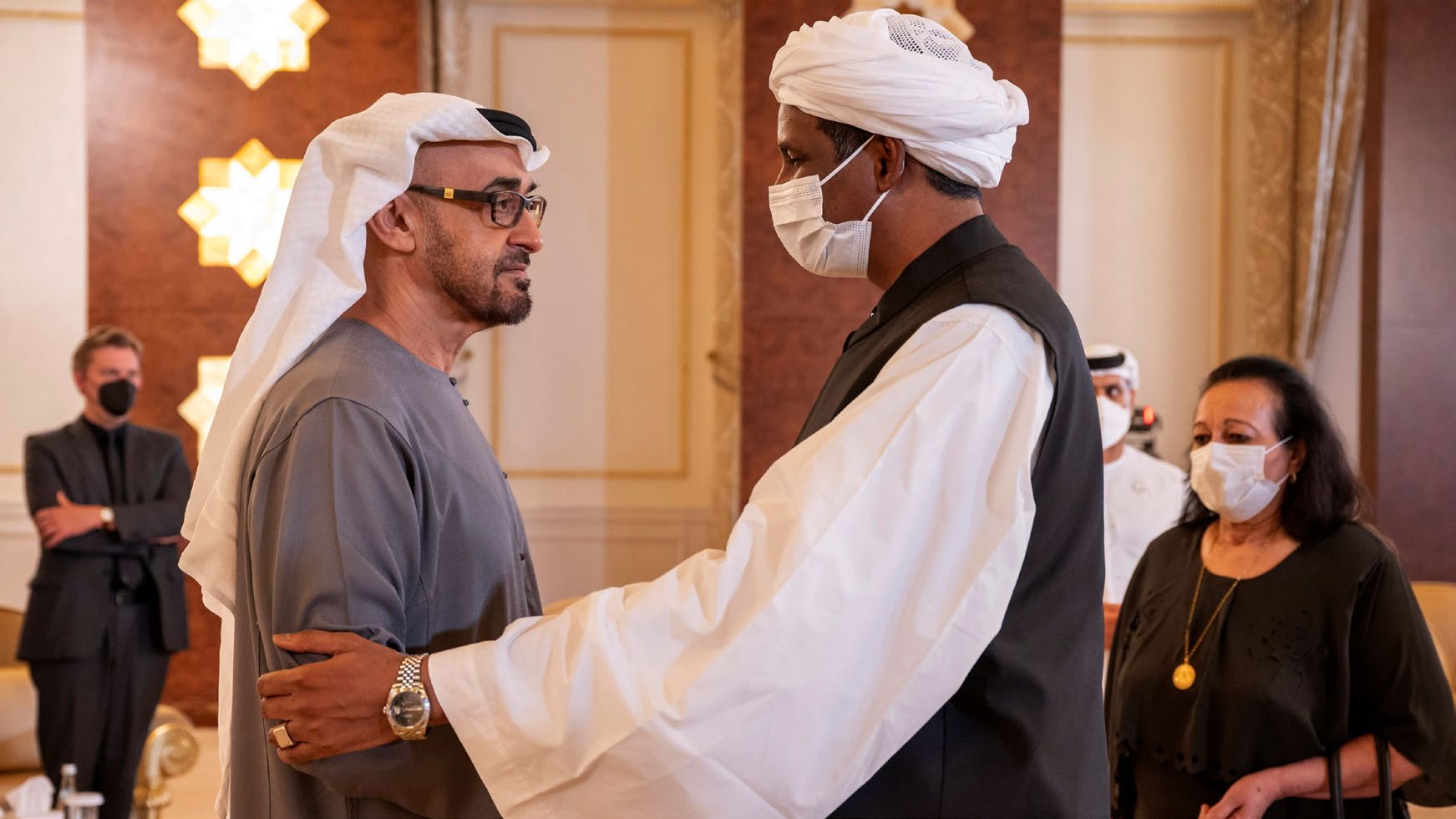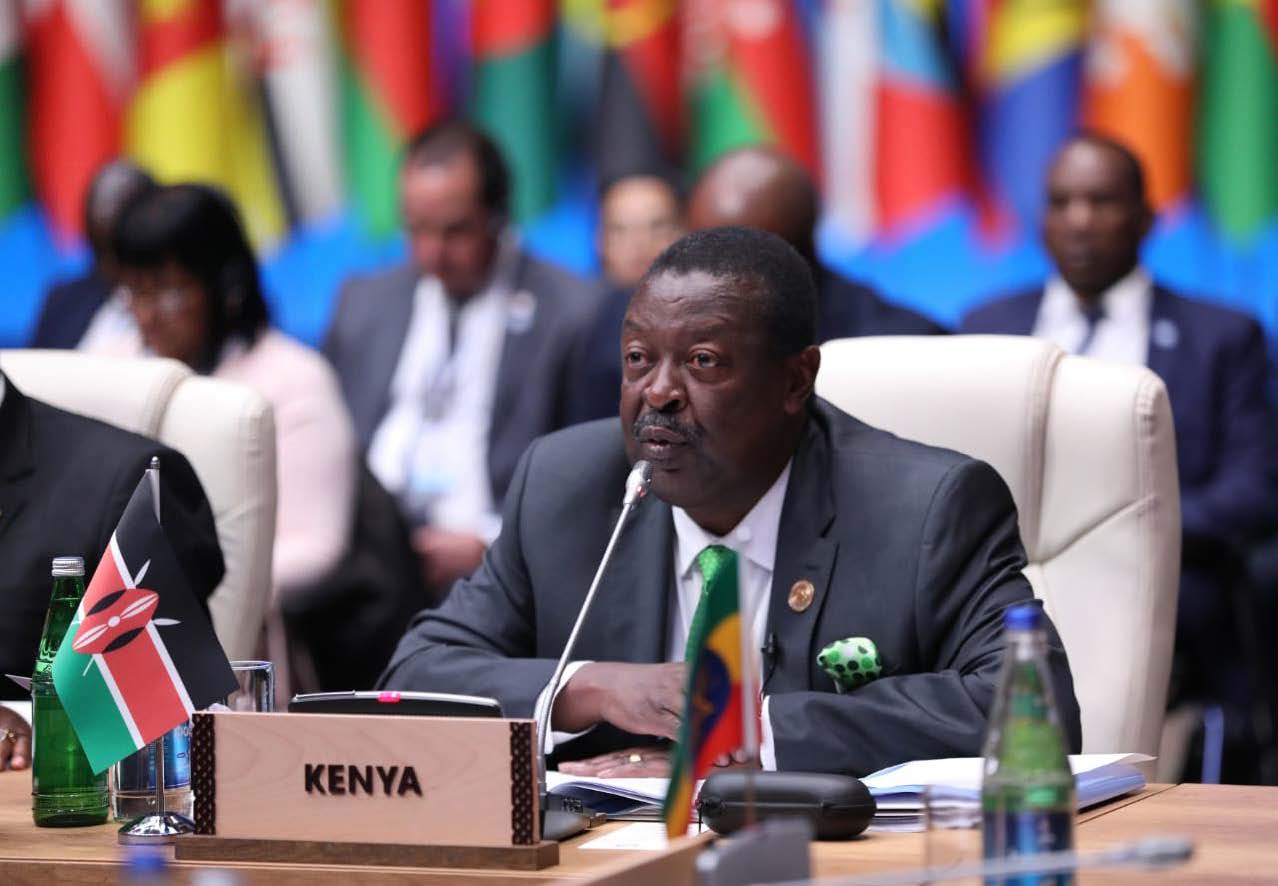
1.0 Introduction
Kenya’s policymakers are an adventurous lot in both domestic and foreign policy. They often appear to be sober-minded until they do something that sends heads spinning as to what they might be up to. They appear to enjoy being a puzzle to themselves and to observers in part because they behave in abnormal ways when they are expected to be normal. They want to be ‘leaders’ only to end up not leading because people lose trust in them. Facing the challenges of regaining the lost trust, they seem lost in their world, rather than being grounded on earth. Among its foreign policy adventures was the hosting of Sudan’s rebels, the Rapid Support Force (RSF), sanctioned and accused of genocide and ethnic cleansing, in Nairobi to form a parallel government. Its claim that it was peace-making was hardly convincing. Sudan retaliated by accusing Kenya of violating its sovereignty and by banning such imports from Kenya as tea. This commentary explores Kenya’s diplomatic adventurism in the Sudan crisis and recommends measures to promote its position as an impartial mediator.
There was a time when Kenya was the go-to country to settle disputes, partly because it commanded the respect of parties in conflict. In the 1970s, it had a reputation as the one to provide “dynamic compromise” that found acceptable middle ground amongst the parties in disagreements. In the 1960s, the Organisation of African Union (OAU) entrusted Jomo Kenyatta to settle feuds in Congo, and he organised meetings in Nairobi where Katanga’s Moise Tshombe enjoyed his Tusker that was in plenty. The Americans scuttled the mediation by landing troops in Congo supposedly to rescue white operators. Kenyatta also tried to mediate the Angolan crisis in the 1970s by hosting the three quarrelling parties of Jonas Savimbi’s UNITA, Holden Roberto’s FNLA, and Agostinho Neto’s MPLA. They showed up, talked, planted trees of peace and returned to Angola to continue fighting. Neto’s MPLA, with Soviet and Cuban assistance, eventually won against US and South African-supported Savimbi’s UNITA and Roberto’s FNLA.

Kenya also ventured into regional conflict mediation in the 1980s and 1990s during Daniel arap Moi’s presidency, and also in the 21st Century under Mwai Kibaki. Gaining the trust of various parties to disputes, Moi helped to reduce tensions in Uganda and Mozambique and was instrumental in starting the peace process that led to the independence of South Sudan. Kibaki risked international criticism by inviting ICC indicted Sudan President Omar Bashir to Kenya’s proclamation of its 2010 Constitution because Bashir held the official key to independence in South Sudan. Kibaki thus oversaw the actual birth of South Sudan. Kenya also helped to put together the government of the fractured Republic of Somalia. In pursuit of the Al-Shabaab, Kenya invaded Somalia in 2011 only to have its troops merge into the African Union’s Missionin Somalia(AMISOM). Once the new government was settled in Mogadishu, seemingly at the behest of big powers interested in Somalia’s oil and gas resources, it went to the International Court of Justice (ICJ) to claim Kenya’s territorial waters. Somalia’s ICJ case caught Kenyan officials flatfooted. Although the ICJ concluded that there was no maritime boundary between Kenya and Somalia, it proceeded to create a boundary in favour of Somalia; Kenya rejected that decision.
Uhuru and Ruto, who won the 2013 election by playing victims to International Criminal Court (ICC) imperialist forces, initially faced a lot of hostility from the big extra-continental powers. They overcame the ICC handicaps, defused that hostility, and then entered into regional peacemaking. Uhuru became an African continental regional star, paying much attention to challenges emanating from the Intergovernmental Authority on Development (IGAD) and the Great Lakes clusters of conflict in Africa. He tried his hand in Congo, where Felix Tshisikedi allowed him to operate in handling M23 and other forces in Eastern Congo. By 2022, however, Uhuru and Ruto had differed so much on an assortment of unclear issues that Uhuru campaigned for Raila against his deputy. The Raila-Uhuru camp was so complacent because it had ‘the system’ that it ignored such election basics as ensuring that people vote or having election agents. It instead started celebrating without voting.

Although with his well-run campaign machinery, Ruto narrowly won the 2022 election, he was not ready to govern. He subsequently made many blunders in and out of Kenya that undermined his presidency, partly by appointing many people whom he later said were incompetent. The incompetence became glaring within two and a half years as he shuffled and reshuffled top policy-making officials at times in acrimonious ways as he did with Deputy President Rigathi Gachagua and Attorney General/Cabinet Secretary Justin B. Muturi. He made glaring mistakes in foreign policy right from the day of inauguration, when, after being visited by Morocco’s Foreign Affairs Minister, he unilaterally announced that he was reversing Kenya’s and the African Union’s position on Western Sahara.
Ruto immediately beat a hasty retreat on Western Sahara due to pressure, but his hasty unilateral action was an indicator of his lack of forethought in governing. He appeared determined to outdo his predecessor, Uhuru Kenyatta, in everything. He flew out of the country more times than any other president, had the ambition to be in good books with the Conceptual West, and had the desire to be recognized as the leader of the Africans. He was quick to comment on issues that made him seem rushed or to make admissions that raised questions instead of answers. He pleased US President Joe Biden by agreeing to send Kenya’s police officers to Haiti, with Biden promising to pay for the cost, and Kenya ended up paying for part of the cost. A happy and thankful Biden gave Ruto a rare treat, a state visit to the United States with many of the paraphernalia for an honoured guest. In Washington, Ruto’s behaviour was close to that of Biden. He held hands with the first lady, Rachel, just like Joe and Jill Biden and enjoyed sitting in Biden’s chair in the Oval Office. There were, however, visible drawbacks to Ruto’s seeming success in Washington.

Other than the issue of taxes dogging him in America, there was the problem of the palatial jet that took him there. When asked about the jet, he talked of ‘friends’ abroad finding out that he was stranded and they offered him a jet that befits his presidential status. The ‘friends’, it seemed, were from the United Arab Emirates (UAE), an Arab country that had become a major operator in Africa. One of the places where it operates is Sudan, with its wealth in both minerals and internal feuds. It seemingly supports one side, the Rapid Support Force (RSF) started in 2013, an offshoot of Janjaweed in Darfur that began in mid-1980s and whose leader travels using a similar UAE-supplied palatial jet as the one that Ruto used.
Sudan is complex, and Kenya constantly finds itself bogged down in Sudan’s instability. It is rich in oil and gold reserves, fertile land along the Nile River, and miles of strategic Red Sea coastline. It is ideal for extremist groups like Al Qaida as a link between Arab North Africa and Sub-Saharan Africa, which re-established itself in the early 2020s by opening new training camps and madrassas. It is saturated with all types of small and big arms, which enables it to generate millions of refugees and thereby trans-nationalise its instability. Initially, when it bordered Kenya, it was a source of many refugees flocking into Kakuma. It was receptive to Kenya’s mediation between Juba and Khartoum, leading to independence in South Sudan. It also tolerated Kenya administering the Elemi Triangle, which remains a potential point of friction between Kenya and independent South Sudan. To ensure independence for South Sudan, Kenya risked international wrath by inviting al-Bashir for its 2010 Constitution Promulgation.

That tolerance of Kenyan involvement in Sudanese affairs seemingly disappeared so that the two countries appear to be enemies. Sudan’s image of Kenya changed from being one of giving a friendly hand to a troubled neighbour to one that interferes with the domestic affairs of an estranged neighbour. The newly elected 2022 William Ruto government, enthusiastic in asserting its presence on the continent as leader and spokesman on African issues, made mistakes that raised geopolitical eyebrows. Military leaders in Sudan were at the receiving end of Ruto’s drive to speak for Africa. When in April 2023, the two rival factions in Sudan, Sudanese Armed Forces, (SAF), led by General Abdel Fattah el-Burhan on one side and the Rapid Support Forces, (RSF), under General Mohamed Hamdan Dagalo, aka Hemedti started fighting, Ruto was quick to tell the generals to “stop this nonsense”. Burhan was not amused.
The two generals had been instrumental in Omar Bashir’s effort to contain Masalit grumblings in Darfur in 2003. They were associated with the Janjaweed militia that went on a civilian killing spree, especially of the Masalit people, mostly because they were not Arabs. With Dagalo distinguishing himself in brutality, the killing of roughly 300,000 Masalits in Darfur led the ICC to indict President al-Bashir over the crime of genocide. Pressure made Bashir rebrand the Janjaweed as Rapid Support Forces, RSF, in 2013. Increased civilian mass uprising led the two generals to join forces with the protestors to oust Bashir and establish an interim government of civilians and the military. After roughly two years of the civilian-military governing experiment, and with the military not interested in preparing for elections, Burhan and Hamdan overthrew the civilians in October 2021. They started planning how Hamdan’s RSF could be integrated into the official Sudanese army, but the effort failed because the two generals engaged in a power struggle. The African Union(AU), reacted to the overthrow by suspending Sudan from AU activities.

The uprisings and the military power struggle seemingly created a vacuum in Sudan that attracted extra-continental players. Among them was the Al Qaida leader, Abu Hudhaifa al-Sudani, who remarked in an October 2022 manifesto that “Sudan’s moment has come; chaos is our chance to sow the seeds of jihad.” Al Qaida seemingly associated itself with Hamdan’s RSF, operating in Darfur. Although the others with interests in Sudan included neighbouring Egypt, Ethiopia, Central Africa, Chad, Eritrea, and South Sudan, it is the extra-continental ones that have the biggest impact. The rivalry between Saudi Arabia and the United Arab Emirates plays itself out in Sudan, with the Saudis on Burhan’s side and the UAE on Hamdan’s side. The UAE reportedly supplies RSF with weapons through its base in Chad, west of Darfur. The US accuses RSF and affiliated Arab groups of conducting genocide in Darfur.
When there was a prison attack in April 2023, SAF blamed RSF, and full civil war broke out between the two. Kenya’s Ruto was then quick to condemn the two generals, telling them to “stop this nonsense” and return governance to civilians. Ruto’s statement seemingly angered Burhan more than Hamdan, and when he tried to mediate between the two on behalf of IGAD, Burhan refused to have anything to do with Kenya. He preferred South Sudan’s Salva Kiir. The rejection was also partly due to the growing perception in Burhan’s camp that Ruto, as prompted by the UAE, favoured Hamdan’s RSF. Burhan’s SAF complained to the International Court of Justice, ICJ, that the UAE was arming and funding the RSF to conduct genocide in Darfur. Opposed to UAF in Sudan are Turkey, Iran, Qatar, and Saudi Arabia, which support Burhan’s side. Although initially, Russia’s Wagner group reportedly supported RSF, which then brought Ukraine on the side of SAF, Russia switched sides and ended up supporting SAF. In switching sides to the official Sudanese government, SAF, Russia hopes to get access to Sudan’s long Red Sea coast.

With the US, the UN, human rights organs, and the media accusing the RSF militia of conducting genocide, countries sought to distance themselves from the embarrassment of being associated with RSF. Instead of distancing itself from RSF, however, Kenya sought to play peacemaker by hosting RSF affiliates in Nairobi to discuss a parallel or alternative government to the one in Khartoum. The problem for Kenya was the perception that it was a proxy for UAE activities in the Sudan civil war. Its hospitality to RSF was what Amb. Mubarak Mahgoub Musa termed “rebranding … the notorious militia” and providing “a functional platform for funnelling lethal weapons and mercenaries, further dismantling Sudan’s territorial integrity.” The international and regional scepticism with which the idea of a parallel/alternative Sudan government did not make Kenya look good.

The Kenyan government tried to justify its action as promoting peace, but scepticism was also within Kenya. Foreign Affairs CS Musalia Mudavadi defended Kenya’s move stating that the “tabling of a roadmap and proposed leadership in Nairobi is compatible with Kenya’s role in peace negotiation which enjoins her to provide non-partisan platforms to conflict parties to seek resolutions.” In claiming that, Mudavadi was not very convincing to Khartoum. Scepticism was also evident in Kenyan diplomatic circles, with analyst Ahmed Hashi accusing President Ruto “of creating a firestorm. He is dilly-dallying with people who are being taken to the ICC, with a person who has been roundly criticized for massive human rights abuses in Sudan.” The government, Hashi asserted, brought negative international focus to itself by hosting RSF criminals. Hashi was not alone.
In the two and a half years of his presidency, President Ruto has tried hard to be recognised as the man to go to for a possible solution to challenges in Africa. His enjoyment of diplomatic adventurism attracts others with adventurous . They rope him into their projects and he ends up looking helpless, and a recipient of negative publicity, as being reckless. He did it on his first day in office, after being visited by Morocco’s foreign minister, by purporting to reverse Kenya’s and the AU’s position on Western Sahara. He appeared eager to please US President Joe Biden by agreeing to send Kenya’s police officers to Haiti, for which he was treated to a state visit. The Haiti mission, poorly funded and resourced, is floundering, and Kenya has had to meet unexpected costs.

It is in Sudan, however, that his good intentions to be a regional peace maker helped to give Kenya a bad name. The seeming closeness with the UAE, which funds and equips Sudan’s RSF, and his entertainment of RSF leadership reflected badly on him and Kenya. RSF is accused of conducting genocide on the Masalit of Darfur, reportedly because the Masalit are not Arabs. In addition, the RSF acts as a conduit for Sudanese gold to go to the UAE. In the process, Kenya is in danger of losing its flagship position as promoter of what used to be called “dynamic compromise” because it was trusted by all parties in specific conflicts. The loss of that trust seemingly played out in Kenya’s bid to have its candidate, Raila Odinga, become the African Union chair. It also appears to affect Kenya’s mediation effort in South Sudan, where a civil war seems imminent. Although it previously had successfully mediated the separation of South Sudan from Sudan, it has problems keeping quarrelling factions in either Sudan or South Sudan talking to each other. Its ability to find an acceptable “dynamic compromise” for various disputes had suffered mainly because it seemingly has lost the trust of feuding parties. Associating with RSF was part of Kenya’s diplomatic adventurism and helped Kenya to lose the trust of others.
SUGGESTED READINGS:
Andreas Krieg, “Gold, arms and mercenaries: ON UAE’s shadowy networks in Sudan,” Middle East Eye, 1 May 2018.
Aggrey Mutambo, “Ruto’s Game of Chance in solving Sudan crisis,” The East African, February 19, 2025.
Tala Mohammad, “How Sudan Became a Saudi-UAE Proxy War,” Foreign Policy, July 12, 2023
Media Directorate, UAE’s Proxy War in Sudan: Exploiting Natural Resources and Committing Genocide, Sudan Fact Sheet Series, Issue No. 1, 14 March 2025, Ministry of Foreign Affairs, Republic of Sudan.
Hilary Kimuyu, “Rapid Support Forces and the William Ruto Sudan war link,” Daily Nation, February 19, 2025
Amgad Fareid Eltayeb, “Dangerous shift, Kenya’s legacy and its relationship with Sudan’s RSF: All the light we cannot see,” The Africa Report, February 26, 202
Sara Harmouch, “Sudan’s descent into chaos sets stage for al-Qaida to make a return to historic stronghold,” The Conversation, May 10 2024
Amb. Mubarak Mahgoub Musa, “The RSF’s Parallel Government: A Desperate Move to Salvage a Sinking Reputation,” Modern Ghana, 19 March 2025
Citizen Reporter, “Ruto is creating a firestorm by inviting RSF to Nairobi- Diplomacy Analyst Hashi,” Citizen Digital, February 19, 2025
Citizen Reporter, “Kenya defends hosting RSF in Nairobi amid Sudan gov’t backlash,” Citizen Digital, February 19, 2025
Reuters, “Sudan’s RSF, allied groups sign charter to form parallel government,” Voice of America, VOA, February 22, 2025
Declan Walsh and Abdi Latif Dahir, “War in Sudan: How Two Rival Generals Started Africa’s Largest Conflict,” The New York Times, 21 March 2025
Kagure Gacheche, Federico Donelli, Jenna Russo, John Makum Mbaku, Khristopher Carlson, “The Battle for Khartoum: tracking Sudan’s war over two years,” The Conversation, March 27, 2025
